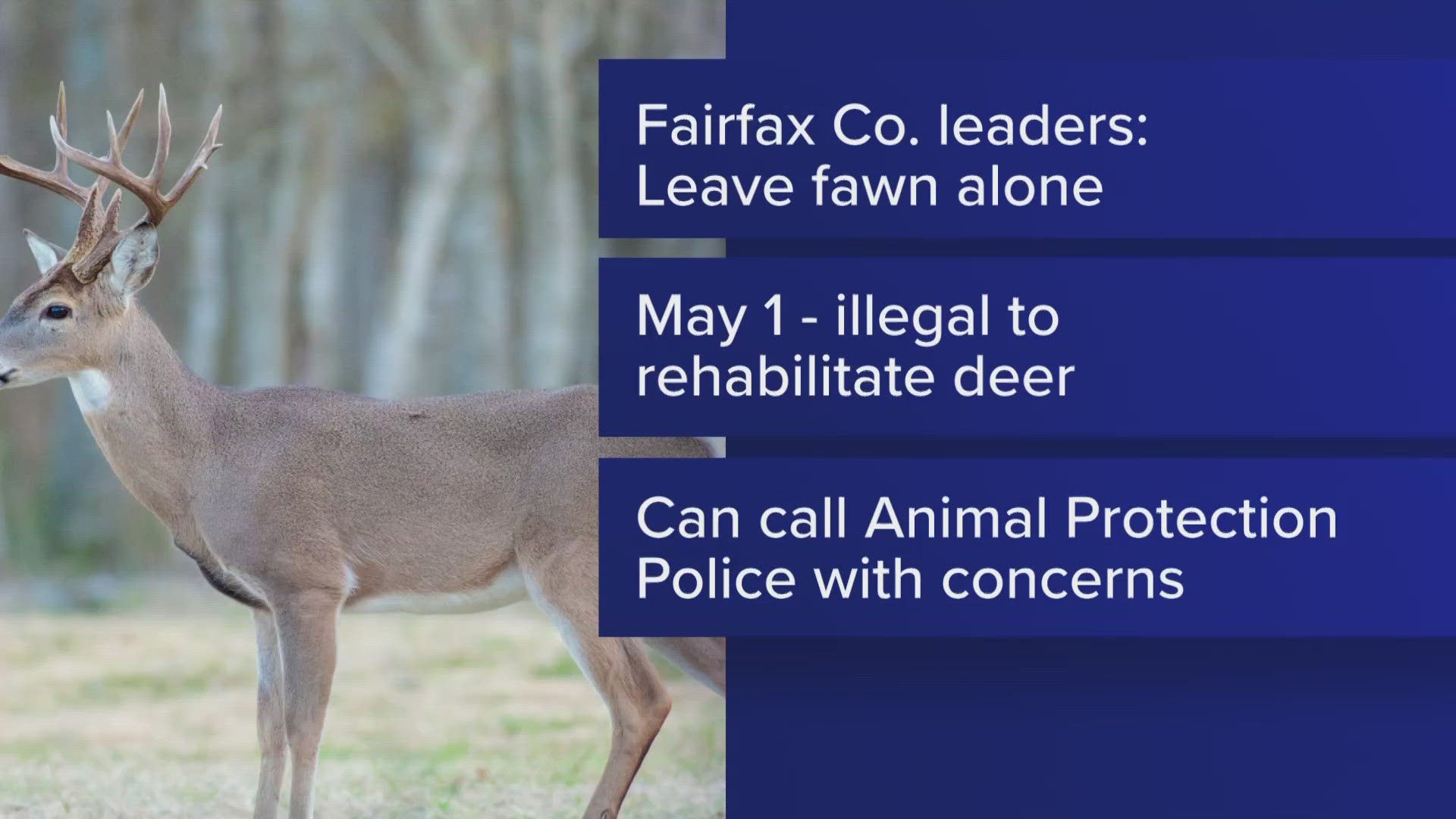FAIRFAX COUNTY, Va. — Spring is here and with it the onset of fawning season. The Fairfax County Police Department is warning residents to leave the fawns alone for the welfare of the animals.
Beginning May 1, the rehabilitation of fawns in Fairfax County is prohibited.
These restrictions on fawn rehabilitation, which are administered and enforced by the Virginia Department of Wildlife Resources, are implemented to reduce potential transmission and spread of Chronic Wasting Disease (CWD) within deer populations in the Commonwealth.
Chronic Wasting Disease is a slow, progressive neurologic disease affecting white-tailed deer and other members of the deer family. The disease is always fatal to affected animals and there is no vaccine to prevent infection and no known treatment for infected animals.
Last season, CWD was confirmed in a white-tailed deer harvested in Fairfax County for the first time. As a result, Fairfax County is being added to a CWD Disease Management Area, which includes regulatory actions to limit the spread of this disease within the county and to new areas.
State wildlife regulations and wildlife rehabilitator permit conditions prohibit the rehabilitation of fawns in any county designated for disease management. Within northern Virginia, this includes Fairfax, Prince William, Arlington, Loudoun, and Fauquier counties.
Given that fawns can no longer be rehabilitated in Fairfax County, it is especially important to make every effort possible to leave healthy fawns where they are found to have the best chance of survival, the police department said.
White-tailed deer fawns are born April through July, with most fawns born in May and June. Newborn fawns are often found on lawns, in flower beds, gardens, bushes or areas of tall grass near homes. It is common for people to encounter white-tailed deer fawns motionless and without their mother, then mistakenly assume it is orphaned or abandoned. In almost all cases, fawns are only temporarily left by their mothers for protection and just need to be left alone.
"A fawn’s best chance of survival is to remain in the wild under the natural care of its mother. Now, more than ever, we ask residents to leave fawns alone unless their health is truly compromised," the department said in a press release.
If a fawn is showing obvious signs of injury or distress, such as visible wounds or broken bones, contact Animal Protection Police for further guidance at 703-691-2131.

